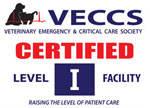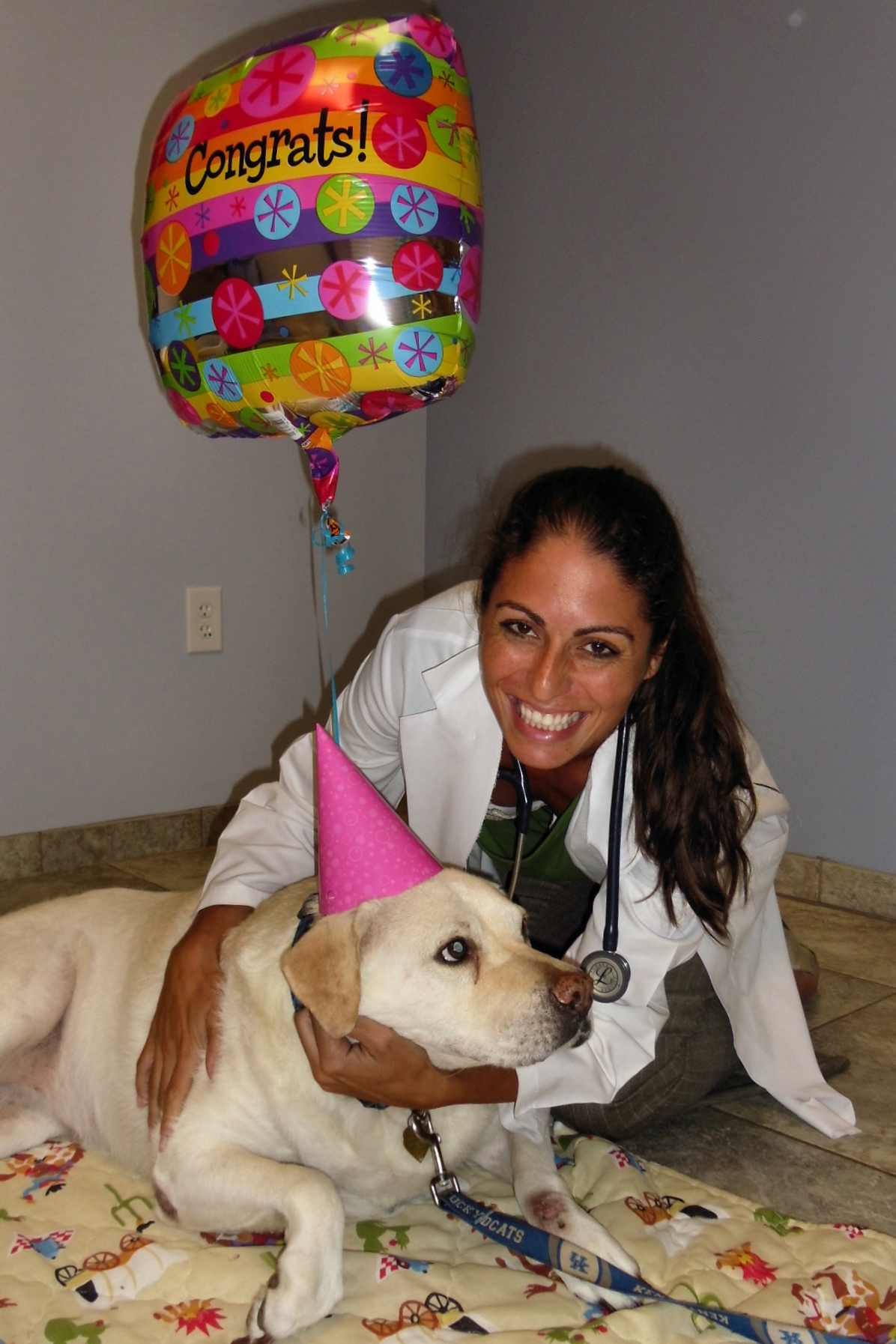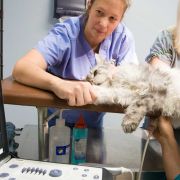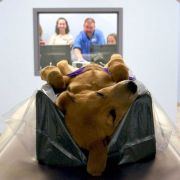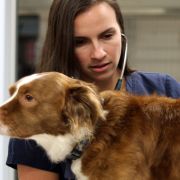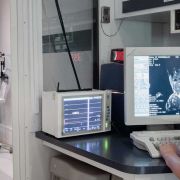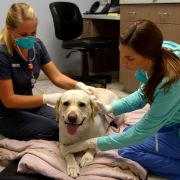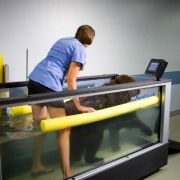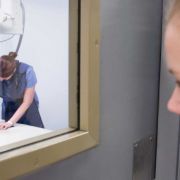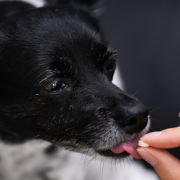Date:
Charleston, SC (August 28, 2012) — The ASPCA says 60% of all dogs over age 6 will get cancer during their lifetime, and Veterinary Pet Insurance says in 2011, they received nearly 50,000 claims for cancer diagnosis and treatment in pets – the No. 1 disease-related killer of dogs and cats. While these statistics may sound grim, there have been amazing advances in veterinary oncology during recent years. Treatments that were once only options for humans – such as surgery, chemotherapy and radiation therapy – are now available for our four-legged family members.
The Nafpliotis family dog, Skylar, was brought into Charleston Veterinary Referral Center (CVRC) back in February. Diagnosed with Lymphoma, Skylar went through weekly and bi-weekly chemo treatments, where she would come in and sit and have her belly rubbed while she got her injection or took an oral pill. Skylar, like MOST canine and feline chemotherapy patients, never experienced any ill effects from her treatment and grew to love her visits to CVRC. After celebrating her last chemo treatment this month (pictured right), Skylar is doing extremely well and in a complete remission! Skylar, who once hated going to the vet, amazed everyone at how at ease she was when she went back to her regular vet for a checkup – her owner is convinced she grew to love the vet because of her experience at CVRC.
Kerry Rissetto, DVM, MS, DACVIM (Oncology) of The Cancer Center at CVRC, who treated Skylar, says while Lymphoma is rarely curable, it is very treatable if caught early. In addition to enlarged lymph nodes, pet owners should be on the lookout for any of the following symptoms:
- Lumps, bumps or swelling
- Decreased appetite
- Excess drinking and urination
- Vomiting and diarrhea
- Weight loss
- Anxiety and discomfort
- Any major changes in appetite, activity or behavior
If you notice any of these signs, your dog should be examined by a veterinarian immediately. Most lumps and bumps can be sampled non-invasively with an answer ready within 30 minutes. While the most common forms of cancer among pets are Lymphoma and skin tumors, cancer can occur in any organ system in the body, so the sooner it is caught, the better the prognosis. If found early enough, the majority of tumors can be kept in remission for a very long time, and in some cases, even cured.
About Charleston Veterinary Referral Center:
Charleston Veterinary Referral Center (CVRC) is a specialty referral, emergency & critical care veterinary hospital which opened in March, 2011. The Center offers a cohesive team of veterinary professionals and staff that are dedicated to practicing the highest caliber of medicine and surgery available. CVRC believes that great care and service are intertwined. With a commitment to respect the integrity of the referral relationship with primary care veterinarians, doctors and staff at CVRC work tirelessly toward the goal of great communication. Our facility is open 24 hours a day, 7 days a week and can be reached at (843) 614-VETS (8387). For more information, please visit us online at http://www.CharlestonVRC.comor find us on Facebook at Facebook.com/CharlestonVRC.



